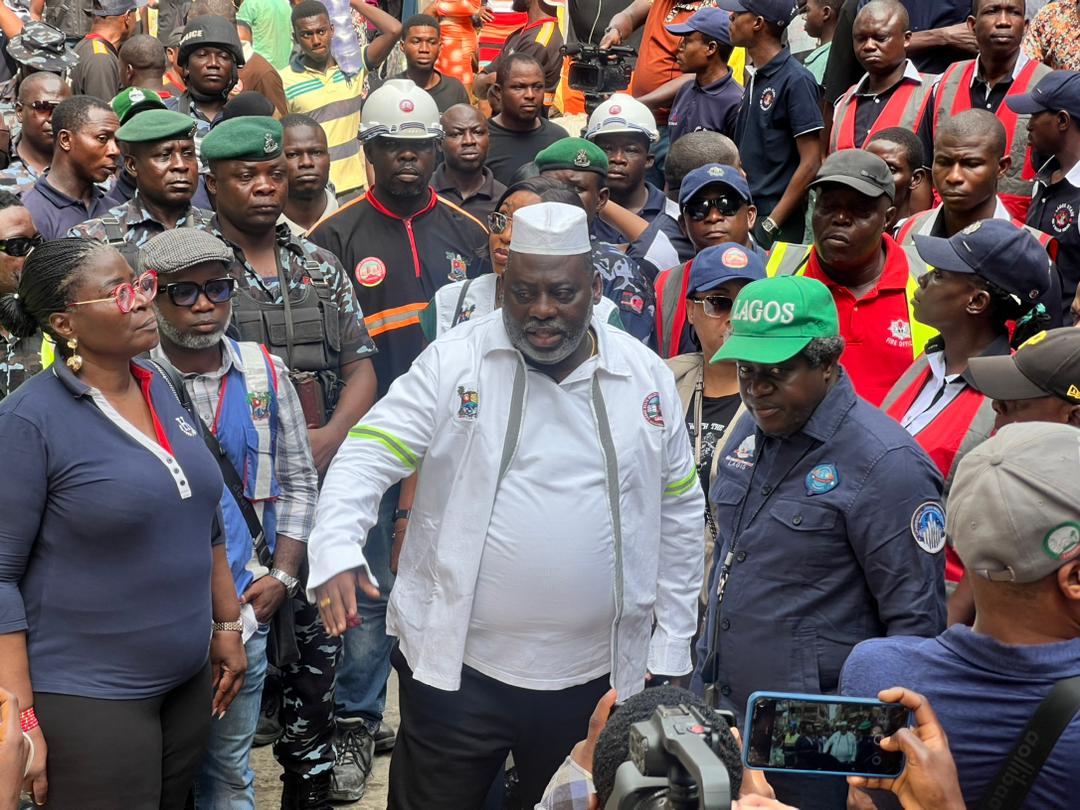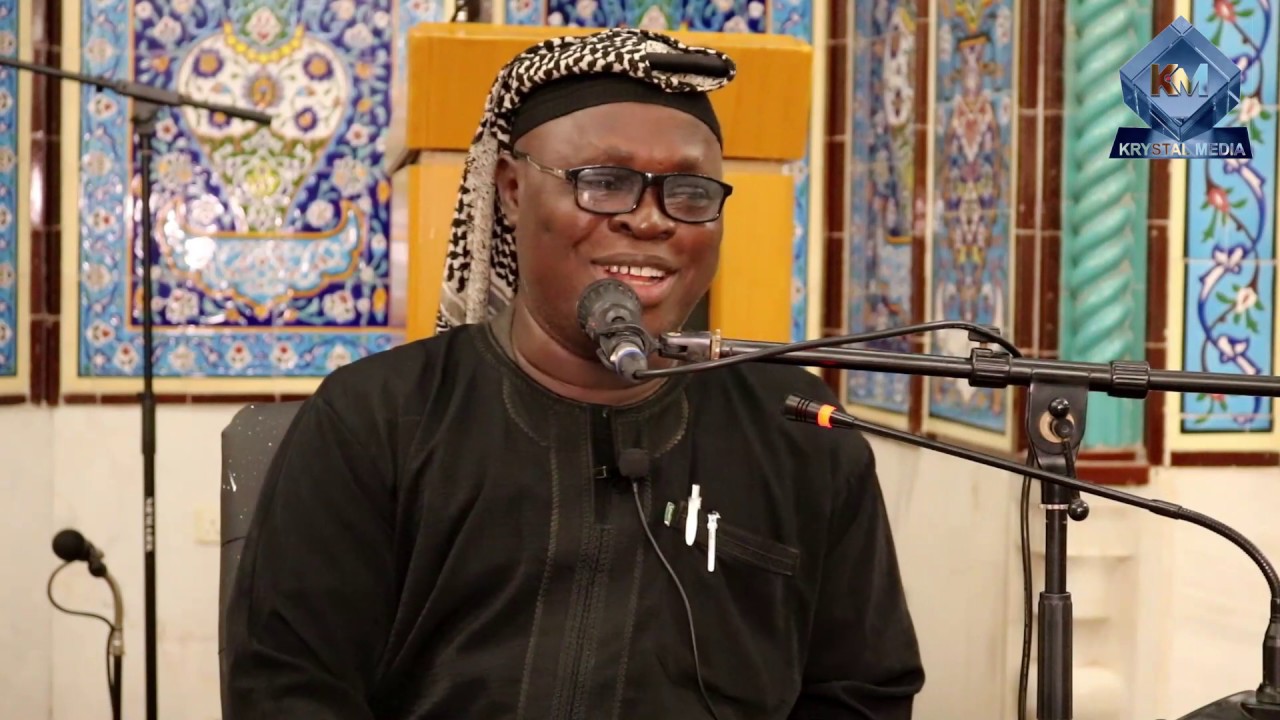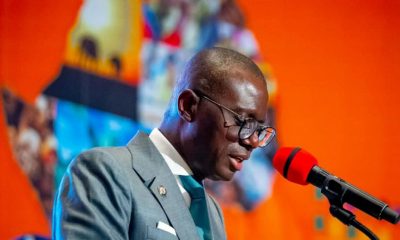metro
Lagos govt shuts Mandilas market, gives traders two days to remove illegal structures

Lagos govt shuts Mandilas market, gives traders two days to remove illegal structures
Lagos State Government has ordered immediate closure of Mandilas Market in the Lagos Island.
Traders operating in the market were given two days to remove all illegal structures in and around the market, including road setbacks.
The closure notice was issued on Saturday during a joint inspection and enforcement exercise carried out by Lagos State Building Control Agency (LASBCA) in conjunction with law enforcement agencies and other relevant government agencies.
This is contained in a statement issued on Saturday by Olusegun Olaoye of LASBCA.

It stated that the enforcement exercise followed the expiration of a 14-day self-removal notice earlier given by the state government to the traders to remove their wares and shops from the roads especially around Mandilas on Lagos Island.
Special Adviser eGIS and Urban Development, Dr. Olajide Babatunde, his colleague in charge of Central Business District, Bola Olumegbon-Lawal, Permanent Secretary at the Office of Urban Development, Engr. Nurudeen Sodehinde, and General Manager of LASBCA, Arc. Gbolahan Oki, led the enforcement gang of the state during the monitoring exercise.
Speaking on the rationale behind the extension, Dr Babatunde said the extension of the initial ultimatum was meant to further give room for the affected shop owners to salvage their belongings by voluntarily removing all structures erected on the walkways.
He expressed dissatisfaction with the lackadaisical attitude of the affected traders and warned that the state government would move in to enforce compliance and removal upon the expiration of the new ultimatum.
On her part, the Special Adviser on CBD said that the clean-up exercise being embarked upon by the state government throughout the entire Lagos Island was for the safety of the residents.
Olumegbon-Lawal lamented the high level of safety infractions being perpetrated within the Mandilas market including the erection of high capacity generating set on makeshift extensions on the first and second floors. Olumegbon-Lawal stressed that the state government was desirous of achieving a well organised and clean city devoid of all forms of environmental nuisance.
Also speaking, the Permanent Secretary Office of Urban Development, Sodehinde said that the state government was sending strong message to Lagosians to be law abiding.
He added that if the state government was forced to carry out the removal of the extensions and illegal structures, the affected persons would be compelled to pay for such exercise.
He said, “Lagos is an urban state and this implies that there should be organisation and proper coordination in the way and manner we carry out our businesses and all our engagements.”
He assured Lagosians that the monitoring and enforcement of compliance of the ongoing cleanup would be sustained until total sanity is restored to Lagos Island.
metro
Army University Professor Dies in Boko Haram Captivity After Nearly One Year

Army University Professor Dies in Boko Haram Captivity After Nearly One Year
Professor Abubakar Mohammed El‑Jummah, Dean of the Faculty of Engineering and Technology at the Nigerian Army University, Biu, Borno State, has died while in the custody of Boko Haram militants, nearly a year after his abduction. His death highlights the ongoing security challenges and insurgency threats in Nigeria’s North-East region.
Professor El‑Jummah was kidnapped on March 3, 2025, along the Damaturu–Buni Yadi–Biu road, a corridor known for frequent terrorist attacks and kidnappings. He reportedly remained in captivity until he fell ill and succumbed to his condition.
The professor’s death was officially communicated to his family in Maiduguri on Wednesday, February 11, 2026. In line with Islamic tradition, a Salatul Ga’ib (funeral prayer in absentia) was held on Thursday, February 12, 2026, at the Ngomari Old Airport Juma’at Mosque, near his residence in Maiduguri. The ceremony was attended by family members, colleagues, friends, and sympathizers, reflecting the profound impact of his work in academia and the military community.
READ ALSO:
- MURIC Calls Proposed US Sanctions on Nigerian Muslims ‘Lopsided’
- Supreme Court Affirms Muslim Students’ Right to Worship at Rivers State University
- Malami’s EFCC Trials Face Procedural Delay as Judge Steps Aside
A relative of the late professor, who spoke on condition of anonymity, described his resilience during captivity and prayed for his soul. The family did not disclose whether a ransom had been demanded during his abduction.
The late professor was widely respected for his contributions to engineering education, mentorship, and leadership at the Nigerian Army University (NAUB). His death underscores the persistent threats posed by Boko Haram to educators, professionals, and civilians in Borno State and other insurgency‑affected areas.
Security analysts warn that incidents like this highlight the urgent need for enhanced counter-terrorism operations and community protection measures to safeguard educators and vulnerable populations in conflict zones.
The Nigerian Army has reiterated its commitment to intensifying operations against Boko Haram to prevent further abductions and ensure the safety of both military personnel and civilians.
Army University Professor Dies in Boko Haram Captivity After Nearly One Year
metro
MURIC Calls Proposed US Sanctions on Nigerian Muslims ‘Lopsided’

MURIC Calls Proposed US Sanctions on Nigerian Muslims ‘Lopsided’
The Muslim Rights Concern (MURIC) has criticised a proposed US bill targeting Nigerian Muslim figures and groups, describing the move as selective, unjust, and biased.
In a statement issued on Thursday, 12 February 2026, and signed by its Founder and Executive Director, Professor Ishaq Akintola, MURIC reacted to reports that five US lawmakers had proposed sanctions — including visa bans and asset freezes — against former Kano State Governor and NNPP national leader Dr. Rabiu Musa Kwankwaso, as well as Miyetti Allah Cattle Breeders Association of Nigeria (MACBAN) and Miyetti Allah Kautal Hore, among others.
MURIC argued that the proposed sanctions unfairly target Muslim individuals and organisations, while other actors involved in religious and communal conflicts in Nigeria appear to be ignored.
READ ALSO:
- Supreme Court Affirms Muslim Students’ Right to Worship at Rivers State University
- Malami’s EFCC Trials Face Procedural Delay as Judge Steps Aside
- Umahi Vows to Quit if Road Project Fails Independent Quality Test
Akintola stated that if sanctions are intended to promote justice, they must be comprehensive and impartial, noting that government officials in Southern Nigeria and leaders of Christian militia groups in North Central Nigeria should also be investigated where evidence warrants.
“We take the decision of the US Congress to sanction Muslims alone with a pinch of salt. It amounts to scapegoating and preconceived judgement,” Akintola said.
The organisation acknowledged the existence of religious extremism and violations of religious freedom in Nigeria, but stressed that these issues affect both Muslim and Christian communities. MURIC also claimed it has records of discrimination and marginalisation against Muslims, which it is prepared to present to international bodies.
MURIC accused US officials of giving more audience to Christian leaders from Nigeria while limiting engagement with Muslim representatives, invoking the legal principle of audi alteram partem — hear the other side — to call for balanced diplomatic consultations.
The group further rejected what it described as the “false designation” of Nigeria as a country perpetrating genocide against Christians, urging a broader investigation before such claims are made.
While affirming that Nigerian Muslims hold no hostility toward the United States, MURIC cautioned that biased international actions could heighten religious tensions, calling for fairness, equity, and transparency in addressing Nigeria’s security and religious challenges.
As of the time of filing this report, US authorities have not responded to MURIC’s statements.
MURIC Calls Proposed US Sanctions on Nigerian Muslims ‘Lopsided’
Education
Supreme Court Affirms Muslim Students’ Right to Worship at Rivers State University

Supreme Court Affirms Muslim Students’ Right to Worship at Rivers State University
The Supreme Court of Nigeria has ruled in favor of Muslim students at Rivers State University (RSU), affirming their constitutional right to practice Islam and perform religious activities on campus. The landmark judgment, delivered on February 10, 2026, closes a legal battle that has lasted for over a decade.
The ruling reinforces Section 38 of the 1999 Constitution (as amended), which guarantees freedom of thought, conscience, and religion for all Nigerians.
The Muslim Students’ Society of Nigeria (MSSN), Rivers State Area Unit, hailed the judgment as a historic affirmation of constitutional rights and the rule of law.
READ ALSO:
- Malami’s EFCC Trials Face Procedural Delay as Judge Steps Aside
- Umahi Vows to Quit if Road Project Fails Independent Quality Test
- NUFBTE Workers Occupy NAFDAC Lagos Office Over Sachet Alcohol Ban
The case traces back to 2012, when a mosque on the university campus was demolished, leaving Muslim students without a dedicated place of worship. The matter passed through the Federal High Court in 2013 and the Court of Appeal in 2017, before finally reaching the Supreme Court.
In a statement, the MSSN emphasized that the ruling is not a victory for one religion over another but a triumph for constitutionalism, equity, and justice. The society commended Muslim students for their discipline, resilience, and peaceful conduct throughout the legal process and acknowledged the efforts of its legal team and community leaders.
The MSSN called on Rivers State University management and relevant authorities to implement the ruling promptly by providing a dedicated and befitting place of worship for Muslim students on campus. The organization also urged students to respond with gratitude and maturity, emphasizing peaceful coexistence and mutual respect within the university community.
Experts believe this decision will have far-reaching implications for religious accommodation and inclusivity in public tertiary institutions across Nigeria.
Supreme Court Affirms Muslim Students’ Right to Worship at Rivers State University
-

 metro2 days ago
metro2 days agoLeadership Crisis at NAHCON as Chairman Abdullahi Saleh Usman Resigns
-

 News2 days ago
News2 days agoOyo Muslims Reaffirm Loyalty to Sultan on Islamic Matters — Grand Chief Imam
-

 News2 days ago
News2 days agoUS Judge Orders FBI, DEA to Release Tinubu’s Criminal Records, Faults Delays
-

 International2 days ago
International2 days agoUS to Deport 18 More Nigerians on ‘Worst-of-the-Worst’ Criminal List (Full Names)
-

 Business2 days ago
Business2 days agoNaira Posts Strong Comeback, Breaking Two‑Year High Against Dollar
-

 metro2 days ago
metro2 days agoFormer NAHCON Chief Explains Why He Stepped Down, Denies Conflicts
-

 Business3 days ago
Business3 days agoCAC Deploys AI, Partners Google to Tackle Rising Business Registration Demand
-

 metro3 days ago
metro3 days agoCourt of Appeal Affirms Senate’s Power to Suspend Natasha Akpoti















